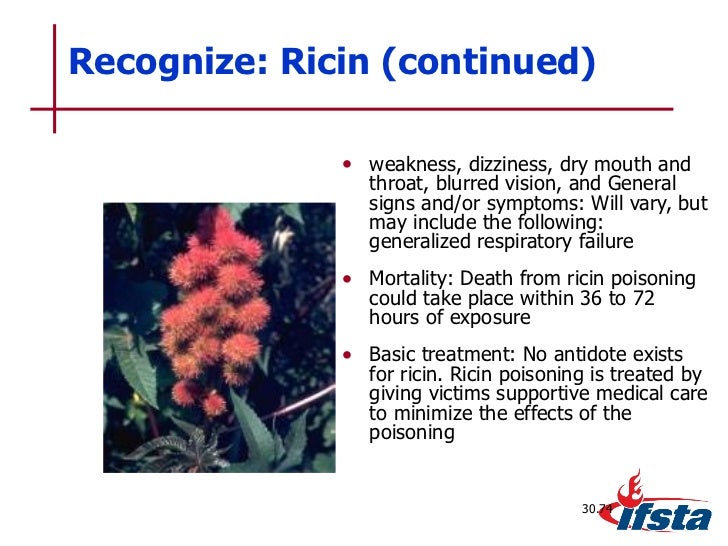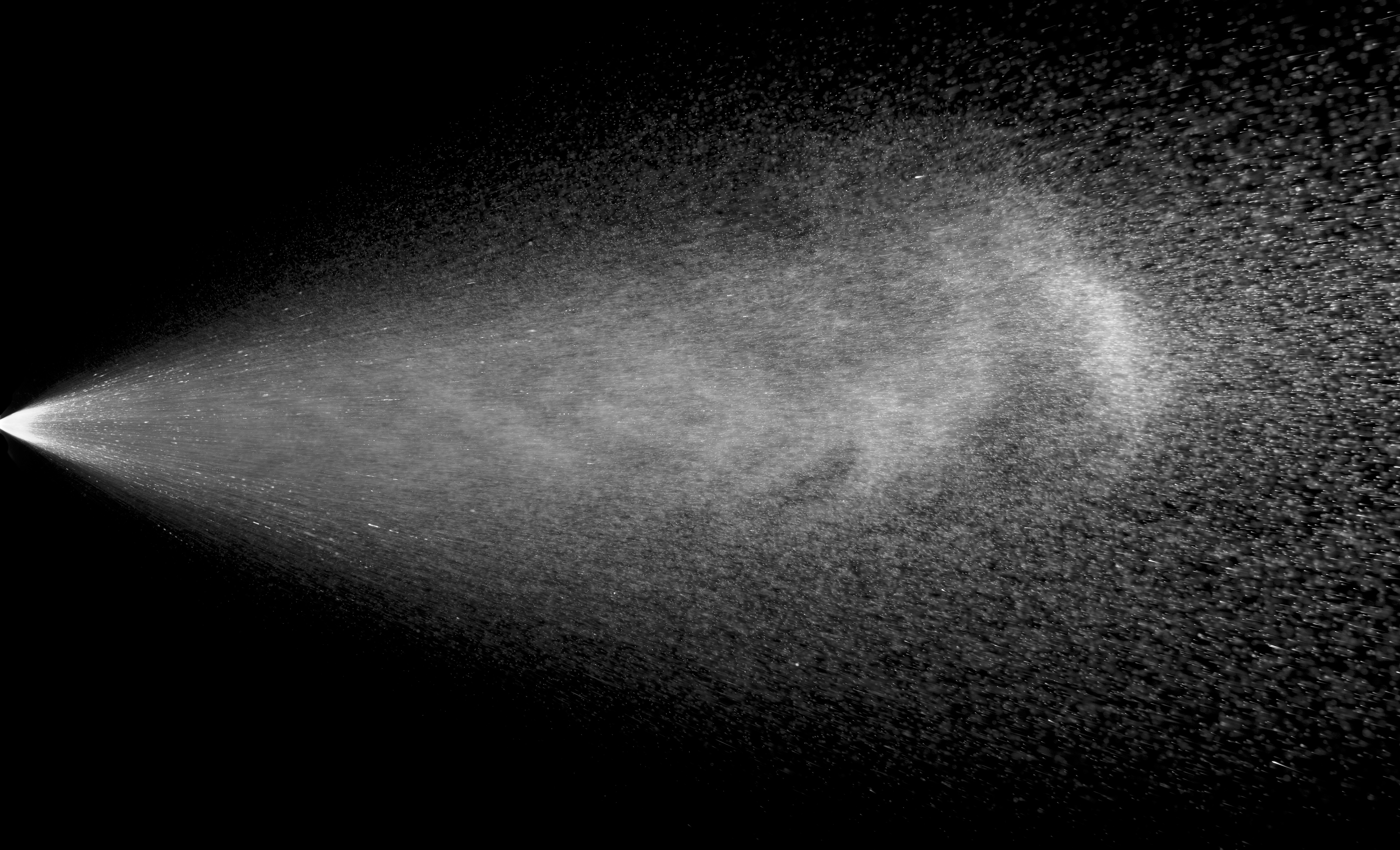


There are no available treatments, antidotes, or vaccines for ricin poisoning.The resulting symptoms depend upon the amount of the toxin and the method by which the individual was exposed. Death can occur between 36 and 72 hours of exposure. Signs and symptoms of ricin poisoning usually begin within 4-6 hours of being exposed to the toxin.Symptoms of ricin poisoning depend upon the amount of the toxin, and the method of exposure, but may include Ricin is a type of poisoning and infectious disease, and it's not contagious (spread from person to person).Exposure arises when it is inhaled, ingested, or injected. Only a small amount of this poison can be lethal.Ricin is derived from the beans of the castor plant ( Ricinus communis) and is part of the waste material called "white mash" that is leftover from processing castor beans into castor oil. Ricin is a potent toxin that has gained attention in recent years because it could be used as an agent of biological warfare or as a weapon of mass destruction (WMD).Meanwhile, Canada's military research agency is cooperating with two Canadian biotech companies to develop a ricin antidote that could be injected after exposure, just as antidotes are available today for rabies and snakebites. Army Medical Research Institute for Infectious Diseases is also working on methods to counter ricin's effect. In the end, it's up to your immune system to develop antibodies and destroy the ricin protein before it destroys you.īut if the Food and Drug Administration gives its go-ahead, one potential anti-ricin vaccine could begin clinical trials by the end of the summer, said Ellen Vitetta, director of the Cancer Immunobiology Center at the University of Texas Southwestern Medical Center in Dallas. For now, the Centers for Disease Control and Prevention can recommend only that you stay away from the toxin, or flush it out in the event of exposure. Treatment addresses only the symptoms of ricin poisoning, such as respiratory problems, seizures or low blood pressure.


 0 kommentar(er)
0 kommentar(er)
